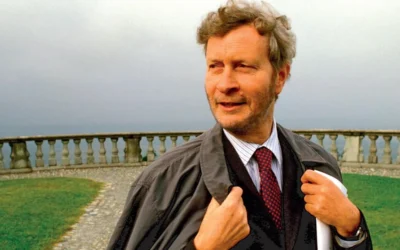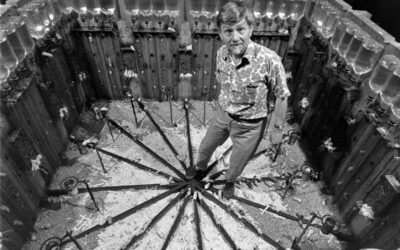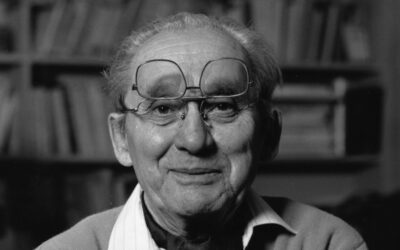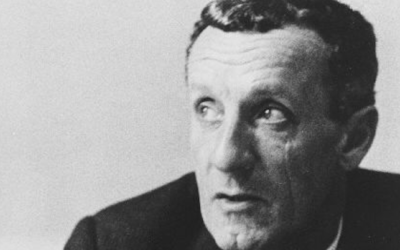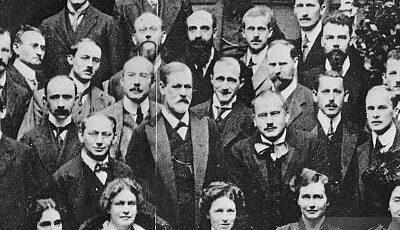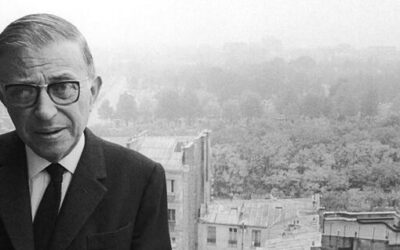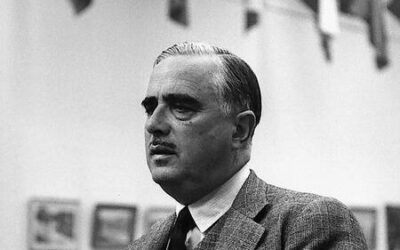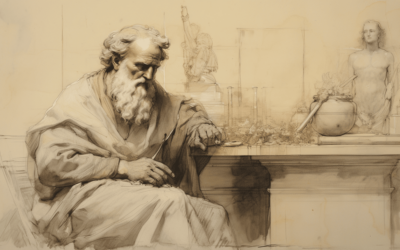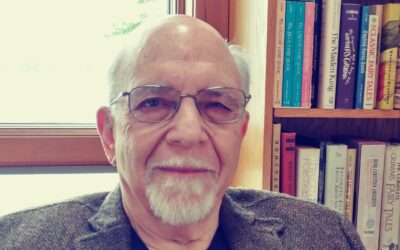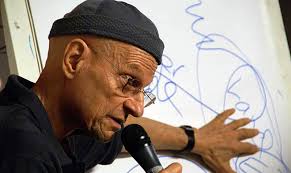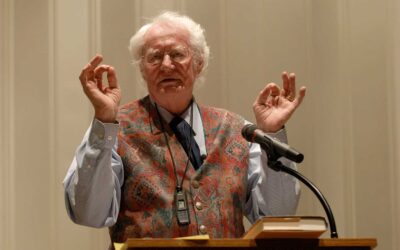The Film That Saw Our Future In 1976, screenwriter Paddy Chayefsky and director Sidney Lumet released a film so prescient about the coming media landscape that audiences didn't know whether to laugh or cry. Network wasn't just satire—it was prophecy. Nearly fifty years later, we're living in the world it predicted: a reality where algorithms dictate human worth, where outrage is currency, and where every radical movement becomes content to be monetized. The film arrived at a pivotal moment in American culture....
Postmodernism: Deconstructing Truth, Power, and Healing in Mental Health
Exploring How Postmodern Philosophy Challenges Traditional Therapeutic Assumptions
Welcome to Taproot Therapy Collective’s exploration of how postmodern philosophy disrupts conventional approaches to mental health, identity, and therapeutic practice. As Birmingham’s leading integrative therapy practice, we recognize that postmodern insights into the constructed nature of truth, the role of language in shaping reality, and the critique of expert authority offer valuable perspectives for understanding both the possibilities and limitations of therapeutic work.
Understanding Postmodernism’s Challenge to Psychology
Postmodernism fundamentally questions the grand narratives that have shaped Western psychology and psychiatry, including assumptions about objective truth, universal human nature, and expert knowledge. These philosophical challenges reveal how cultural, historical, and political forces shape what we consider “normal” psychological functioning while highlighting how therapeutic approaches themselves reflect particular worldviews rather than neutral scientific truths.
This perspective offers critical frameworks for examining the therapeutic approaches detailed on our main services page, questioning not only how these modalities work but also what assumptions about human nature, healing, and expert authority they embed while remaining committed to effective, compassionate mental health care.
Key Postmodern Thinkers and Mental Health Applications
Michel Foucault and the Medicalization of Experience provides crucial insights into how psychiatric categories and therapeutic practices function as forms of social control that shape rather than simply describe human experience. Foucault’s analysis of how power operates through knowledge production reveals how diagnostic categories and treatment approaches often reflect social and political interests rather than objective medical realities.
His exploration of how institutions create “normal” subjects illuminates how mental health systems can inadvertently pathologize diverse ways of being while reinforcing social hierarchies and cultural expectations that may contribute to rather than alleviate psychological distress.
Jacques Derrida and Deconstructive Approaches offers tools for examining how binary oppositions like healthy/sick, rational/irrational, and normal/abnormal structure therapeutic thinking in ways that may limit understanding of human complexity and possibility. Deconstructive reading reveals how these categories depend on excluding and marginalizing alternative ways of understanding experience.
Derridean insights inform therapeutic approaches that question rather than reinforce dominant cultural narratives about mental health, success, relationships, and personal growth while creating space for alternative stories and ways of being that honor rather than pathologize difference.
Jean-François Lyotard and the End of Grand Narratives examines how skepticism toward universal explanations applies to psychological theories that claim to explain all human behavior through single frameworks like cognitive dysfunction, chemical imbalance, or unconscious conflict. This perspective encourages therapeutic humility and openness to multiple, contradictory explanations for psychological experience.
Jean Baudrillard and Simulation explores how media, consumer culture, and social expectations create simulated versions of authentic experience that individuals feel pressured to embody, leading to psychological distress when lived experience doesn’t match these cultural simulations of happiness, success, or normality.
Postmodern Therapeutic Approaches and Applications
Narrative Therapy and Social Construction builds directly on postmodern insights to help clients understand how their life stories have been shaped by dominant cultural narratives while creating space for alternative, more empowering stories. This approach treats problems as separate from people while examining how social and political forces contribute to individual distress.
Understanding how cultural narratives about gender, race, class, sexuality, and ability shape individual self-understanding helps clients recognize that personal struggles often reflect broader social problems requiring both individual healing and social change for comprehensive resolution.
Solution-Focused Therapy and Local Knowledge emphasizes client expertise and local solutions rather than expert-driven treatment protocols, reflecting postmodern skepticism toward universal approaches and professional authority. This perspective honors how individuals and communities develop unique resources and strategies that may not fit standard therapeutic models.
Collaborative Approaches and Power Analysis examine how traditional therapeutic relationships reproduce hierarchical power dynamics while exploring more egalitarian alternatives that honor client knowledge and experience. Postmodern therapy questions who has authority to define problems and solutions while working to minimize rather than exploit power differences inherent in therapeutic relationships.
Critiques of Evidence-Based Practice and Scientific Authority
Postmodern perspectives offer important critiques of evidence-based practice movements that may inadvertently reinforce professional authority while marginalizing client experience and cultural diversity. These critiques, explored in our psychology and research section, don’t reject scientific inquiry but question how research findings are produced, interpreted, and applied in ways that may serve institutional rather than client interests.
Understanding how research methodologies, funding sources, and publication practices shape what counts as “evidence” helps therapists maintain critical awareness of how scientific authority can function to silence alternative ways of understanding psychological experience and healing.
Identity, Difference, and Therapeutic Practice
Fluid Identity and Multiple Selves challenges therapeutic approaches that assume coherent, stable identity while exploring how individuals navigate multiple, sometimes contradictory aspects of selfhood across different contexts and relationships. This perspective informs work with clients struggling with identity questions, life transitions, and cultural code-switching.
Intersectionality and Complex Identity examines how individuals experience multiple, intersecting forms of oppression and privilege that shape psychological experience in ways that single-issue approaches cannot address. Postmodern therapy recognizes how racism, sexism, homophobia, classism, and other systems of oppression interact to create unique patterns of psychological stress and resilience.
Cultural Critique and Personal Liberation explores how dominant cultural narratives about success, happiness, family, and relationships may contribute to individual psychological distress while supporting clients in developing authentic values and life directions that resist rather than conform to cultural pressures and expectations.
Birmingham Applications and Cultural Context
Birmingham’s complex history with racial oppression, civil rights activism, and ongoing social change provides unique contexts for applying postmodern insights to mental health understanding. The city’s experiences demonstrate how individual psychological symptoms often reflect broader social and political problems requiring both personal healing and social transformation.
Understanding how historical trauma, systemic oppression, and cultural resistance shape mental health experiences in Birmingham helps therapists provide care that addresses both individual symptoms and the social conditions that contribute to psychological distress while honoring community strengths and resistance traditions.
The city’s diverse population and ongoing gentrification create opportunities for exploring how postmodern insights inform culturally responsive therapy that questions rather than reinforces dominant cultural assumptions about mental health, family structure, and personal success.
Contemporary Developments and Ongoing Debates
Critical Psychology and Institutional Critique examines how postmodern insights inform critiques of mental health systems, professional training, and therapeutic institutions that may inadvertently reproduce social hierarchies and cultural biases while claiming to provide neutral, scientific treatment.
Postmodern Feminism and Therapeutic Practice explores how feminist postmodern perspectives inform therapy approaches that address how gender, sexuality, and patriarchal structures shape individual psychological experience while supporting personal empowerment and social change.
Digital Culture and Postmodern Identity investigates how social media, virtual relationships, and online communities create new contexts for identity formation and social construction that require updated therapeutic approaches informed by postmodern insights into simulation, performance, and authentic self-expression.
Integration with Clinical Practice
Postmodern perspectives enhance rather than replace evidence-based therapeutic approaches by providing critical frameworks for understanding how cultural, political, and social forces shape both individual psychological experience and therapeutic practice itself. This integration maintains commitment to effective mental health care while remaining critically aware of how therapy functions within broader systems of power and meaning.
Understanding postmodern critiques helps therapists provide more culturally responsive, socially aware, and ethically sophisticated care that addresses both individual symptoms and the social conditions that contribute to psychological distress while honoring client expertise and cultural diversity.
What You’ll Find in These Articles
Our postmodernism content explores how questioning fundamental assumptions about truth, identity, and authority opens new possibilities for understanding mental health and therapeutic practice. These articles examine how postmodern philosophers have challenged traditional psychology while showing practical applications for contemporary therapy work.
From exploring how Foucault’s insights apply to psychiatric diagnosis to understanding how narrative therapy embodies postmodern principles, these pieces translate complex philosophical ideas into accessible frameworks for anyone interested in critical approaches to mental health and social change.
Connect with Our Postmodern Psychology Community
For deeper exploration of postmodern philosophy and its applications to mental health and therapeutic practice, check out more on the Discover + Heal + Grow Taproot Therapy Collective blog and podcast where we regularly feature critical psychologists, postmodern therapists, and cultural critics exploring the intersection of philosophy, politics, and mental health care.
Subscribe to our YouTube channel for discussions on postmodern psychology and cultural critique, listen to our podcast for interviews with critical psychologists and postmodern practitioners, follow us on Instagram for daily insights on cultural criticism and therapeutic practice, connect on LinkedIn for professional resources on postmodern approaches to mental health, find us on Google Maps for culturally critical and socially aware therapeutic services, and join our Reddit community for discussions on postmodern philosophy, critical psychology, and social justice approaches to mental health.
Featured Article Categories
Our Postmodernism content includes Deconstructing Psychological Categories examining how diagnostic labels and treatment approaches reflect cultural rather than medical realities, Narrative and Social Construction exploring how stories and language shape psychological experience, Power and Authority in Therapy addressing hierarchical dynamics and professional privilege, Identity and Difference investigating fluid selfhood and intersectional experience, Cultural Critique and Mental Health examining how social conditions contribute to individual distress, Birmingham Social Context applying postmodern insights to local cultural and historical dynamics, Contemporary Applications showing how postmodern perspectives inform current therapeutic innovation, and Integration with Practice demonstrating how critical awareness enhances rather than undermines effective mental health care.
Contact Taproot Therapy Collective: 📍 2025 Shady Crest Dr. Suite 203, Hoover, AL 35216
📞 (205) 598-6471
🌐 www.GetTherapyBirmingham.com
🎧 Podcast: gettherapybirmingham.podbean.com
Discover + Heal + Grow with Taproot Therapy Collective – Birmingham’s resource for critical, postmodern approaches to mental health understanding and therapeutic practice.
Biosemiotics: Bridging Biology, Consciousness, and the Anthropology of Self
Anthropology and Evolutionary Psychology for Therapy, Psychology of Media and Culture, Psychology of Modernism Post Modernism and the Meta Modern
What is Biosemiotics? Biosemiotics is an emerging interdisciplinary field that explores how living systems create, interpret, and communicate meaning. It offers a unique lens through which to understand the intricate relationships between biology, consciousness, and the way we construct our sense of self. By bridging these domains, biosemiotics provides valuable insights into therapy, trauma, and the anthropology of self. At its core, biosemiotics posits that life is inherently semiotic - that is, all living...
Is Metamodern Meme Cultural Making us Speak Literally and Symbolically at the Same Time
Metamodernism and Deconstruction, Philosophy for Therapists, Psychology of Media and Culture, Psychology of Modernism Post Modernism and the Meta Modern
The Metamodern Linguistic Turn What is Metamodernism? Metamodernism is an emerging cultural paradigm and sensibility that transcends the dichotomies of modernism and postmodernism. It seeks a synthesis of the universal aspirations and grand narratives of modernism with the relativism, irony and deconstruction of postmodernism. As we progress further into the 21st century, it becomes increasingly clear that the cultural frameworks of the past are no longer adequate for making sense of our rapidly shifting world....
Weak Thought, Strong Therapy: Gianni Vattimo and the Metamodern Turn
Metamodernism and Deconstruction, Philosophy for Therapists, Psychology, Psychology of Modernism Post Modernism and the Meta Modern
Explore the relevance of metamodernism, spirituality, and depth psychology for understanding culture, trauma, and the practice of psychotherapy in the modern world. Discover insights from Carl Jung’s transcendent function and contemporary thinkers.
The Universe 25 Experiment and the Psychological Stress of Modern Civilization
Anthropology and Evolutionary Psychology for Therapy, Jungian Therapy and Depth Psychology, Psychology of Modernism Post Modernism and the Meta Modern
What Was The Universe 25 Experiment? In the 1970s, ethologist John B. Calhoun conducted a famous experiment called Universe 25. In the study, a colony of mice was placed in a utopian enclosure called a "mouse paradise" with unlimited access to food, water, and nesting materials. The colony rapidly expanded but then exhibited increasingly dysfunctional and abnormal behaviors as overcrowding intensified. Many withdrew from social interaction, some became aggressive, mothers neglected their young, and eventually the...
Modernist Painting was Invented by a Woman: The Theosophical Diagrams of Hilma Af Klint
Jungian Therapy and Depth Psychology, Psychology of Modernism Post Modernism and the Meta Modern, Psychology of Mystics, Gurus, and Spiritual Philosophers
Hilma af Klint: A Visionary Artist Who Pioneered Abstract Art Hilma af Klint (1862-1944) was a Swedish artist and mystic whose pioneering abstract paintings predated the work of Vasily Kandinsky and other modernist artists by several years. Born in Stockholm, af Klint studied at the Royal Academy of Fine Arts, where she developed her skills in traditional painting and portraiture. However, her true artistic breakthrough came after she embraced spirituality and began exploring the unseen realms of existence...
Jean Gebser: Integration through the Integral
Phenomenology and Existential Psychology, Psychology of Modernism Post Modernism and the Meta Modern, Psychology of Mystics, Gurus, and Spiritual Philosophers, Psychotherapy Biographies: Historical Figures in the History of Psychology
Who is Jean Gebser? Jean Gebser (1905-1973) was a German-born Swiss philosopher, linguist, and poet who made significant contributions to the understanding of human consciousness and cultural evolution. His magnum opus, "The Ever-Present Origin" (1949), outlines a theory of the unfolding of human consciousness through five distinct stages or "structures": the archaic, magical, mythical, mental, and integral. Gebser's work has had a profound influence on fields as diverse as anthropology, psychology, sociology,...
Paul Ricoeur: A Philosopher of Language, Narrative Identity and Hermeneutics
Christian Mysticism in Therapy, Phenomenology and Existential Psychology, Psychology of Buildings and Architecture, Psychology of Modernism Post Modernism and the Meta Modern, Psychology of Mystics, Gurus, and Spiritual Philosophers, Psychotherapy Biographies: Historical Figures in the History of Psychology
Who was Paul Ricouer? Paul Ricoeur (1913-2005) was one of the most influential French philosophers of the 20th century. His wide-ranging work made major contributions to the fields of phenomenology, hermeneutics, existentialism, theology and literary theory. Ricoeur is known for his analysis of language and narrative as fundamental to human understanding and identity. His insights reshaped debates around interpretation theory, selfhood, memory, history and ethics. This comprehensive essay explores Ricoeur's key...
Maurice Merleau-Ponty: Embodied Perception and Existential Phenomenology
Christian Mysticism in Therapy, Jungian Therapy and Depth Psychology, Metamodernism and Deconstruction, Phenomenology and Existential Psychology, Psychology of Buildings and Architecture, Psychology of Modernism Post Modernism and the Meta Modern, Psychology of Mystics, Gurus, and Spiritual Philosophers, Psychotherapy Biographies: Historical Figures in the History of Psychology, Trauma Treatment in Alabama, Trauma, Depth Psychology, and Social Work
Who was Maurice Merleau-Ponty? Maurice Merleau-Ponty (1908-1961) was a French philosopher and phenomenologist who made significant contributions to the fields of phenomenology, existentialism, and the philosophy of perception. His work bridged the gap between continental philosophy and the emerging fields of cognitive science and psychology, influencing subsequent thinkers in philosophy, psychology, and the social sciences. Merleau-Ponty's theories on embodied cognition, the lived body, and the primacy of...
Eugen Bleuler (1857-1939): Pioneering Insights into the Understanding and Treatment of Schizophrenia
Psychology of Modernism Post Modernism and the Meta Modern, Psychology of Mystics, Gurus, and Spiritual Philosophers
Who is Eugen Bleuler? 1.1. The Significance of Eugen Bleuler's Contributions to Psychiatry Eugen Bleuler, the renowned Swiss psychiatrist, made groundbreaking contributions to the understanding and treatment of schizophrenia, a severe mental disorder that affects millions of people worldwide. His work revolutionized the conceptualization of the illness, moving away from the prevailing notion of "dementia praecox" as a progressive deterioration of mental functions, and towards a more nuanced and holistic...
Jean-Paul Sartre: Existentialism, Freedom, and the Human Condition
Phenomenology and Existential Psychology, Philosophy for Therapists, Psychology of Buildings and Architecture, Psychology of Modernism Post Modernism and the Meta Modern, Psychology of Politics, Psychotherapy Biographies: Historical Figures in the History of Psychology
Who was Jean-Paul Sartre? Jean-Paul Sartre (1905-1980), the renowned French philosopher, novelist, and playwright, stands as one of the most influential thinkers of the 20th century. His philosophical ideas, particularly his conception of existentialism, have had a profound impact on various fields, including psychology, psychotherapy, and our understanding of the human condition. Sartre's emphasis on human freedom, responsibility, and the inherent meaninglessness of existence has challenged traditional notions...
Jacob Burckhardt: A Life of Cultural History and Psychological Insight
Phenomenology and Existential Psychology, Philosophy for Therapists, Psychology of Buildings and Architecture, Psychology of Modernism Post Modernism and the Meta Modern, Psychotherapy Biographies: Historical Figures in the History of Psychology
Who was Jacob Burckhardt? Jacob Burckhardt (1818-1897), the renowned Swiss historian and philosopher of culture, has made an indelible impact on our understanding of the Renaissance, modernity, and the nature of historical change. His groundbreaking works, such as "The Civilization of the Renaissance in Italy" (1860) and "Reflections on History" (1868), have not only reshaped the field of cultural history but also provided valuable insights into the psychological dimensions of historical transitions and the role...
Zosimos of Panopolis: The Alchemical Philosopher and His Legacy
Phenomenology and Existential Psychology, Psychology of Buildings and Architecture, Psychology of Modernism Post Modernism and the Meta Modern, Psychology of Mystics, Gurus, and Spiritual Philosophers
Who was Zosimos of Panopolis? Zosimos of Panopolis, a Greek-Egyptian alchemist and Gnostic mystic who lived around the end of the 3rd and beginning of the 4th century AD, stands as one of the most influential figures in the history of alchemy and early chemistry. His works, though fragmented and often cryptic, provide invaluable insights into the philosophical and practical aspects of early alchemical thought. This essay aims to explore Zosimos' life, his major contributions to alchemy, and the lasting impact of...
Nathan Schwartz-Salant: Illuminating the Depths of the Psyche
Psychology of Buildings and Architecture, Psychology of Modernism Post Modernism and the Meta Modern, Psychotherapy Biographies: Historical Figures in the History of Psychology
Who was Nathan Schwartz-Salant? 1.1 Nathan Schwartz-Salant's multidisciplinary approach Nathan Schwartz-Salant, an American Jungian analyst and author, has made significant contributions to the field of depth psychology, offering innovative perspectives on the complex dynamics of the human psyche. His work spans a wide range of topics, including alchemy, narcissism, borderline personality disorder, and the creative process, reflecting his multidisciplinary approach to understanding the mind. Schwartz-Salant's...
Peter Sloterdijk: The Pioneering Metamodern Philosopher
Metamodernism and Deconstruction, Phenomenology and Existential Psychology, Philosophy for Therapists, Psychology of Modernism Post Modernism and the Meta Modern, Psychology of Mystics, Gurus, and Spiritual Philosophers, Psychotherapy Biographies: Historical Figures in the History of Psychology
Who is Peter Sloterdijk? 1.1 Peter Sloterdijk's multidisciplinary approach Peter Sloterdijk, a German philosopher, cultural theorist, and essayist, has emerged as one of the most influential and thought-provoking thinkers of the 21st century. His work spans a wide range of disciplines, including philosophy, psychology, anthropology, and political theory, making him a truly multidisciplinary thinker. Sloterdijk's unique approach to philosophy has earned him a reputation as a provocative and original thinker,...
Abraham Maslow’s Enduring Legacy and Impact on Psychology and Beyond
History of Psychotherapy, Psychology of Modernism Post Modernism and the Meta Modern
Who was Abraham Maslow? Abraham Maslow was one of the most influential psychologists of the 20th century, leaving an indelible mark on the field of psychology and shaping our understanding of human motivation, potential, and well-being. His groundbreaking theories, particularly the Hierarchy of Needs and the concept of self-actualization, have had a profound and lasting impact far beyond the realm of psychology. Maslow's work played a pivotal role in the development of humanistic psychology, which emerged as a...
Arnold Mindell and Process-Oriented Psychology: Pioneering a Path Beyond Jungian Analysis
History of Psychotherapy, Phenomenology and Existential Psychology, Psychology of Modernism Post Modernism and the Meta Modern, Psychology of Mystics, Gurus, and Spiritual Philosophers
Who is Arnold Mindell? Arnold Mindell is a pioneering figure in the field of depth psychology who has made significant contributions through his development of process-oriented psychology, also known as process work. Mindell's approach represents a creative synthesis of Jungian psychology, physics, Taoism, shamanism, and systems theory. It offers a innovative framework for working with individuals, relationships, and groups that honors the wisdom of the unconscious and the transformative power of following the...
Robert Bly: Psychology Through Poertry
History of Psychotherapy, Jungian Therapy and Depth Psychology, Psychology of Modernism Post Modernism and the Meta Modern, Psychology of Mystics, Gurus, and Spiritual Philosophers
Who was Robert Bly? "If a culture does not deal with the warrior energy—take it consciously, discipline it, honor it—it will turn up outside in the form of street gangs, wife beating, drug violence, brutality to children, and aimless murder." Robert Bly (1926-2021) was an influential American poet, author, activist, and leader of the mythopoetic men's movement. Over his long career, Bly published numerous collections of poetry, translations, and prose works that explored masculinity, spirituality, and the human...
David Tacey: Innovation and Restoration of the Jungian Tradition
History of Psychotherapy, Jungian Therapy and Depth Psychology, Psychology of Modernism Post Modernism and the Meta Modern
Who is David Tacey? David Tacey (1953-) is a prominent Australian scholar and thinker known for his unique contributions bridging analytical psychology, spirituality, and cultural studies. As a leading figure in post-Jungian thought, Tacey has built upon and extended many key ideas from the depth psychology tradition while innovatively applying them to analyze contemporary secular societies and the modern crisis of meaning. Over his prolific career, Tacey has articulated a powerful interdisciplinary vision that...
The Mystical Philosophy of Pythagoras: Insights for Jungian Psychology and the Individuation Process
Jungian Therapy and Depth Psychology, Phenomenology and Existential Psychology, Psychology of Modernism Post Modernism and the Meta Modern, Psychology of Mystics, Gurus, and Spiritual Philosophers
Who was Pythagoras “No one is free who has not obtained the empire of himself. No man is free who cannot command himself.” ― Pythagoras Pythagoras, a renowned ancient Greek philosopher and mathematician, developed a unique and influential philosophical system that combined elements of mysticism, mathematics, and spirituality. His teachings, known as Pythagoreanism, had a profound impact on Western thought and continue to resonate with contemporary ideas in psychology and personal growth. This blog post will...




